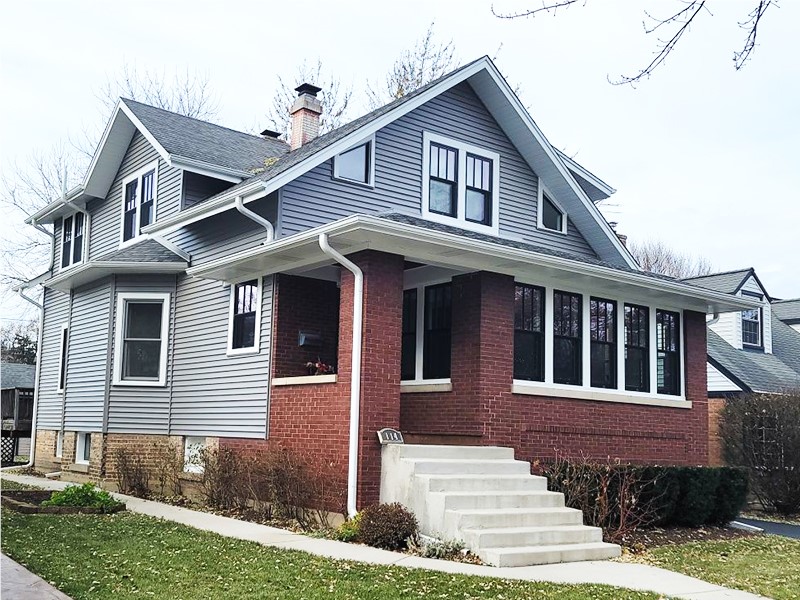
Are you thinking of giving your home a much-needed update? Nowadays, more and more people understand the value that remodeling can bring to their property. With just a few simple changes, you can transform your home into an even better space for your family to enjoy for years to come. From enhancing curb appeal with exterior alterations to refreshing outdated interior spaces with modern updates - this article will show you the potential benefits of remodeling today!
Benefits of Home Remodeling
Home remodeling is an excellent way to bring new life and value to your home. It’s a process that can be completed in stages, allowing you to begin with the most urgent updates or tackle larger projects as your budget allows. Home remodeling doesn’t have to be expensive either; many updates can be completed on a budget with suitable materials and knowledge.
One of the most obvious benefits of home remodeling is improving aesthetics. Whether you are updating old cabinets, adding new flooring, or completely overhauling a room, a remodel will make your home look more attractive and inviting. In addition, this can increase the curb appeal of your property if you decide to sell at some point down the line.
Having a clear plan
A clear plan (inspiration, photos, examples of remodeling design, wish list), budget, and timeline is essential to any successful home remodeling project. Before diving right into the work, you must have a checklist of items and steps to create your dream space; this will help guide you through the decision-making process and ensure that all aspects of the remodel are considered.
Having a professional contractor
The best way to guarantee a successful home remodeling project is to hire a professional contractor who can provide quality service and expertise. Having an experienced set of eyes on the job can save time, money, and stress in the long run. In addition, a good contractor can offer advice on materials and designs while offering tips on preparing your home for construction or repair work.
Remodeling doesn’t have to be a complicated process; the proper planning and resources can bring a new level of life and value to care of before starting your project. These include:
• Researching local regulations and building codes
• Securing necessary permits for your renovations
• Obtaining material estimates from trusted suppliers
• Hiring professionals such as electricians and plumbers if needed
• Assigning tasks among family members or helpers
• Scheduling inspections throughout the process
• Evaluating all risks associated with the renovation process
Once these initial steps are completed, you can confidently move forward, knowing that everything has been accounted for to complete safely.
What do you want to change in your home?
What do you want to change, improve, add, or remove in layout, design features, and functionality? What materials and finishes are desired? How will the remodel affect the overall energy efficiency of the home? These questions help determine a realistic budget, timeline, and scope of work that must be addressed before beginning any major renovation. Additionally, it’s essential to consider local building codes when planning changes that may need permits. Once these details have been established, homeowners can choose a contractor specializing in their particular project needs. Working with an experienced contractor helps ensure the best results while staying within budget and timeline expectations.
A quality remodeling job should start by assessing all existing structures and components to decide what should stay, what should go, and what needs to be improved; this helps create a plan of action that outlines the steps required to reach desired results. Then, depending on the renovation type and project size, some homeowners may need to obtain permits from their city or county to move forward with the job.
What are necessities and negotiables?
When planning a remodel, it's essential to identify what are the necessities—and what the negotiables are. Needs typically include structural repairs, functional improvements that make the home livable and up-to-code with current building standards, and necessary updates for essential comfort like water heaters or new windows.
Negotiables can be aesthetic improvements like flooring, counter tops, or cabinets; these may not be essential, but they can add character to your home. Other negotiables include an entertaining outdoor area that may seem nice but aren't necessarily a "must have" in function. By carefully assessing your and your family's needs and budgeting accordingly, you can create a remodel that fits your lifestyle and wallet.
Keeping the home's value in mind is also essential, as remodeling projects often increase property value; it's wise to consider upgrades with resale potential when planning a remodel. For example, adding an attached garage or updating kitchen appliances may make for more appealing features when you eventually decide to put your home on the market.
Consider your and your family's current lifestyle
Discuss your needs with the design/build team and ensure you get what you want within your budget. Remodeling can add value to your home, provide better use of space, increase storage capacity, improve energy efficiency, and make daily life easier. It also offers an opportunity to create a modern look that reflects your personality and taste. With careful planning and proper execution, you can create a living space that is beautiful and functional for years to come. The key is to research before starting any remodeling project – get several estimates from reputable contractors to ensure the best quality workmanship at the right price.
Additionally, remember that unexpected problems can arise during a renovation process; having a flexible timeline and budget will help to alleviate some of the stress. Lastly, remember that remodeling can be disruptive and messy; taking care of yourself during the process is essential, so you stay calm.
Finally, a successful remodel can add tremendous value to your home and make it a source of joy for years. With the right team at your side, you can create a stunning living space that is comfortable, stylish, and functional. Keep these tips in mind when planning any renovation project and enjoy watching your dream become a reality!
Is a room addition better, or is it better to expand your kitchen?
When it comes to remodeling, choosing between room addition or expanding your kitchen mainly depends on your needs and budget. While many homeowners opt for a room addition to add more living space to their homes, in other cases it may be for feasible to expand your existing kitchen space. We can discuss options with you according to your time plan and budget.
Sometimes, a room addition could provide an extra bedroom, office, or study area if you need additional space. If that’s what you’re looking for, then making an addition could be worth considering. But remember that most additions require structural changes like building foundations and walls, which can significantly increase your remodeling costs.
On the other hand, expanding your existing kitchen can help you gain more counter space, storage, and open plan living without having to incur significant extra expenses; this is especially true if you're looking for a more oversized kitchen island or want to add a dining area. Expanding your existing kitchen is also better if you don't have enough outdoor space available for a room addition.
In short, when it comes to remodeling, there's no one-size-fits-all answer – it all depends on your specific needs and budget. So, consider both options carefully before ensuring you get the best outcome possible from your remodeling project. And if you have questions, contact us today or schedule an appointment for an estimate.
Tags
Subscribe to Pro Home 1's Blog





Comments